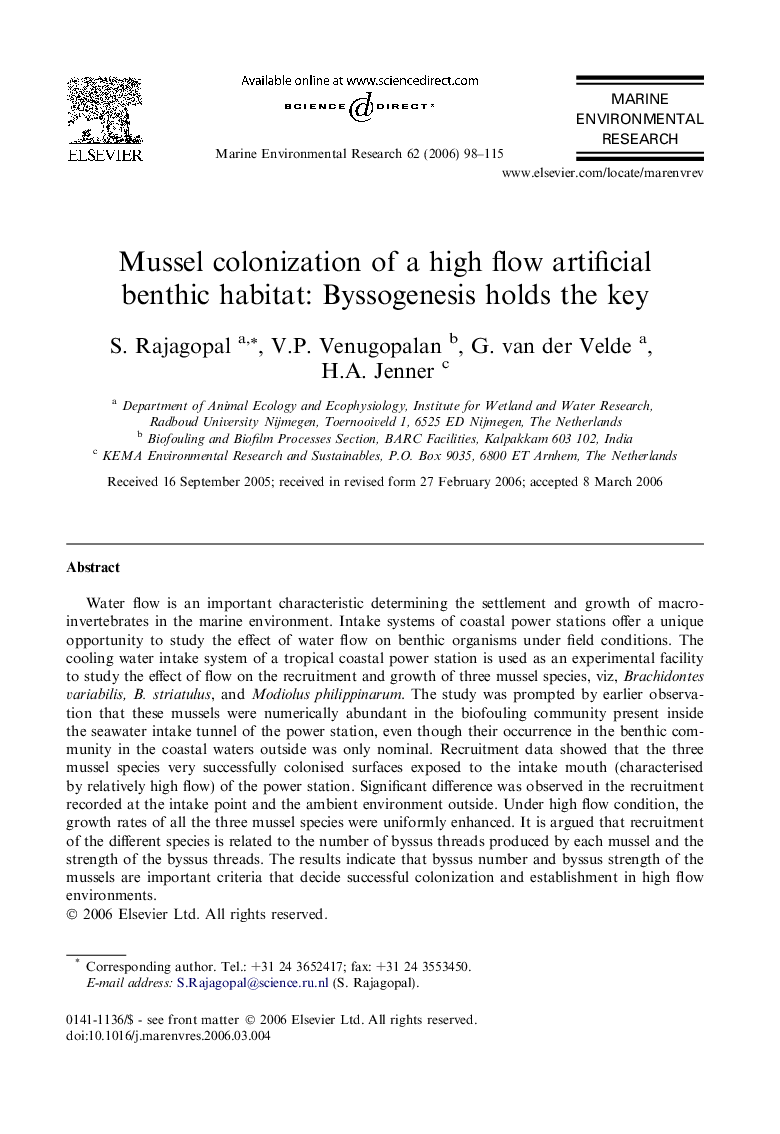| Article ID | Journal | Published Year | Pages | File Type |
|---|---|---|---|---|
| 4551813 | Marine Environmental Research | 2006 | 18 Pages |
Water flow is an important characteristic determining the settlement and growth of macro-invertebrates in the marine environment. Intake systems of coastal power stations offer a unique opportunity to study the effect of water flow on benthic organisms under field conditions. The cooling water intake system of a tropical coastal power station is used as an experimental facility to study the effect of flow on the recruitment and growth of three mussel species, viz, Brachidontes variabilis, B. striatulus, and Modiolus philippinarum. The study was prompted by earlier observation that these mussels were numerically abundant in the biofouling community present inside the seawater intake tunnel of the power station, even though their occurrence in the benthic community in the coastal waters outside was only nominal. Recruitment data showed that the three mussel species very successfully colonised surfaces exposed to the intake mouth (characterised by relatively high flow) of the power station. Significant difference was observed in the recruitment recorded at the intake point and the ambient environment outside. Under high flow condition, the growth rates of all the three mussel species were uniformly enhanced. It is argued that recruitment of the different species is related to the number of byssus threads produced by each mussel and the strength of the byssus threads. The results indicate that byssus number and byssus strength of the mussels are important criteria that decide successful colonization and establishment in high flow environments.
